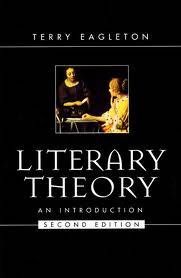Best of Book Riot: Literary is as Literary Does
This week we’re running some of our favorite and most popular posts from our first three months.
__________________________
Disillusionment is a necessary, if underappreciated, part of education. What we think we know is stripped away, what we don’t know is exposed, and what we want to know is brought to light. The first part, though, is damned hard. As an ingenuous and ambitious English major some dozen years ago, I had only one belief, only one scripture: literature. Religion was for the blind, politics for the monomaniacal, science for the empirical, philosophy for the pedantic, business for the narcissistic, and engineering for the woefully earth-bound. God, I must have been insufferable.
 And then I had my very first literary theory class. “Lord,” I thought, “they sure are trying to suck the magic out of this.” The difficulty and abstruseness of Derrida or Jameson or Benjamin, though, were not the most severe blows my true belief in literature would take that semester. No, it was the introductory chapter of Terry Eagleton’s Literary Theory that delivered the unkindest cut. (It remains a surprisingly accessible primer that I would recommend for those interested in an overview of the field). In prefacing his subsequent survey of literary theory, Eagleton provides a brief intellectual history of “literature” as an idea and ends with this hammer-strike:
And then I had my very first literary theory class. “Lord,” I thought, “they sure are trying to suck the magic out of this.” The difficulty and abstruseness of Derrida or Jameson or Benjamin, though, were not the most severe blows my true belief in literature would take that semester. No, it was the introductory chapter of Terry Eagleton’s Literary Theory that delivered the unkindest cut. (It remains a surprisingly accessible primer that I would recommend for those interested in an overview of the field). In prefacing his subsequent survey of literary theory, Eagleton provides a brief intellectual history of “literature” as an idea and ends with this hammer-strike:
What we have uncovered then is that literature does not only not exist in the same sense that insects do, and that the value-judgments by which it is constituted are historically variable, but that these value-judgments themselves have a close relation to social ideologies. They refer in the end not simply to private taste, but to the assumptions by which certain social groups exercise and maintain power over others.
There it was: Literature as just another social construction—no port in a storm, just more of the storm. My love for reading was not some bubbling up of humanity, beauty, and truth; it was the product of my class, condition, biology, and education. This is not what I wanted to hear. Over time, though, I came to find the idea liberating rather than crushing. Instead of focusing on the “literature does not exist” part of the equation, I came to appreciate the “it is constituted” part.
The passive construction is endemic to much cultural criticism, since it is so difficult to assign agencies in the maelstrom of human culture. But the fact remains, literature might not have an essence, but that means that we get to decide what it is. People who read. People who write. People who review. People who edit, and query, and critique. People who buy, sell, and collect. We who care about literature get to decide what it is. That decision takes the form of recommendations, raves, pans, geek outs, questions, confusions, syllabi, anthologies, and awards. Ultimately, this has helped me avoid fruitless definitional squabbles (Franzen is literature, Weiner isn’t, for example) and create my own private definition, which has turned out to be relatively consistent. Whatever else literature might be, my literature has three qualities: seriousness, complexity, and style. What this has meant is that my literature can be about anything (notice that content is not really a factor for me), as long as it has the other three components. Content-focused works (ie anything primarily about turning pages) don’t make my cut: no Stieg Larsson (though I enjoyed reading the Salander books), no Harry Potter (Snape for the win) or cozy mysteries (not so much).
The last benefit to thinking about “my” literature is that it tells me something about me. That I like Woolf says less about the literary bone fides of Woolf than it does about what I want from literature and, in the end, what kinds of ideas and experiences matter to me. And this, my college self would be very glad to hear, is fine compensation for belief.
__________________________
Jeff O’Neal is the editor of Book Riot. Follow him on Twitter: @readingape











